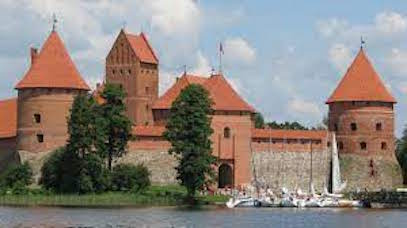This extraordinary overreaction is likely to prompt more pushback from the EU, which is mulling special measures to protect its members from exactly this kind of “economic coercion”.
Mainland China is a military and economic superpower. But as its leaders are finding out, in some contests other things matter more. As punishment for the opening of a “Taiwanese office” in Vilnius, the regime that rules mainland China has introduced extraordinary sanctions on the largest Baltic state, delisting it as a “country of origin”, meaning that no Lithuanian goods can be imported. It is also trying to block all exports to Lithuania.
This approach is both pointless and counterproductive, as Edward Lucas writes in Europe’s Edge. It is pointless because Lithuania sells almost nothing to mainland China: €300m-worth of goods (about $340m) in 2020, less than 1 percent of its total exports. Nor will sanctions work in the other direction. Any goods exported to the European Union’s single market can travel to any EU country. China cannot stop Lithuanian customers ordering via Latvia or Poland. $600m in new American export credits (and booming sales to a grateful Taiwan) should more than make up for any economic pain.
While failing to achieve its objective, the Chinese leadership is trashing its reputation. It has in the past imposed sanctions on other countries (Japan, Norway, Australia, and even Taiwan). But these have hit specific trade categories. As Jeffrey Wilson of the Perth US-Asia Centre, an Australian think tank, notes, the goal was to “damage trade, not annihilate it”. The new move is unprecedented in its scope and severity. It flagrantly breaks the rules of the World Trade Organization (WTO), the international governance body which China joined in 2001. (Irony alert: within the WTO framework mainland China does recognize Taiwan as a trade partner, while now claiming in effect that Lithuania does not exist).
This extraordinary overreaction is likely to prompt more pushback from the EU, which is mulling special measures to protect its members from exactly this kind of “economic coercion”. The timing could hardly be better for hawks in the European Parliament, or more inconvenient for those who wish to soft-pedal criticism of the Chinese Communist Party leadership’s behavior.
Source: Lapresse






























